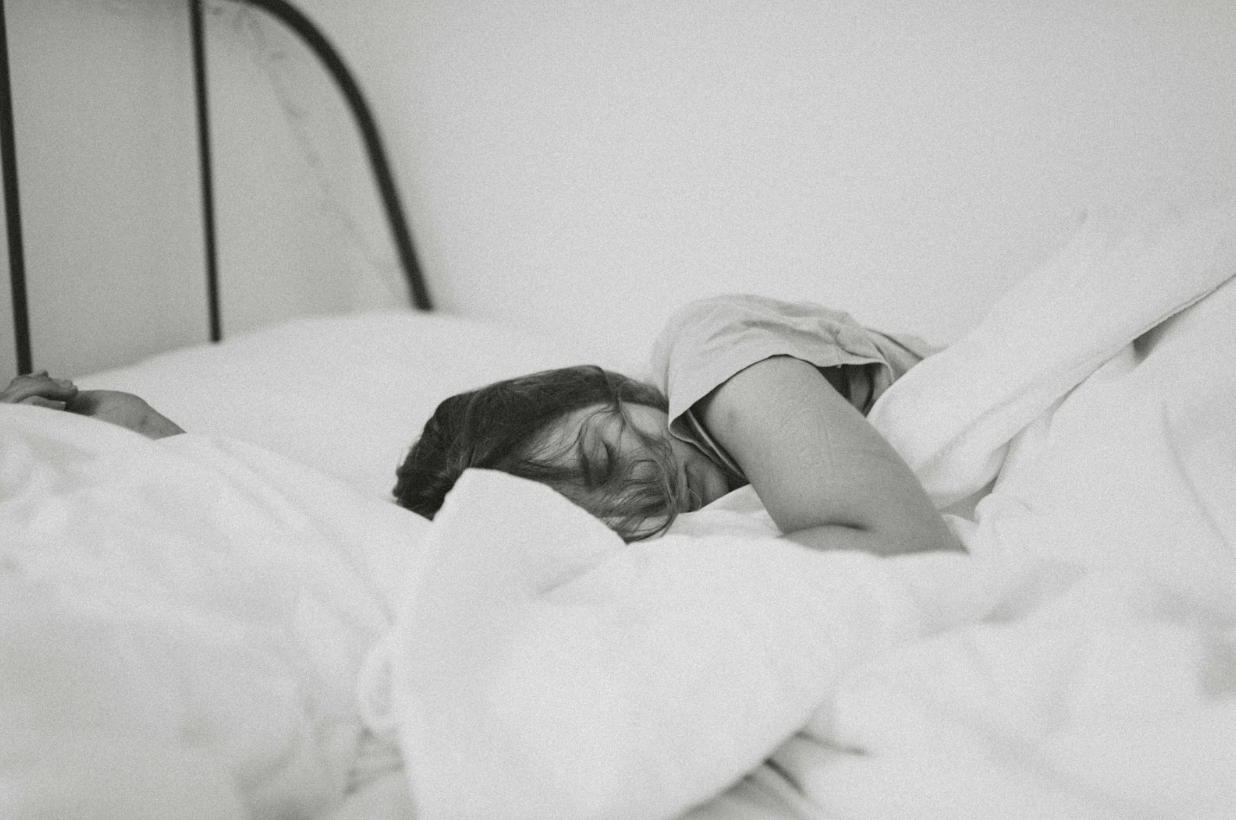Did you know the bed sheets you sleep on could be affecting your skin health? If you have acne-prone skin, your bedding might be contributing to those stubborn breakouts. While skincare routines and dietary choices often take center stage in acne prevention, your choice of sheets plays a crucial role in keeping your skin calm and clear.
This article will explore the connection between bedding material and acne-prone skin, helping you make informed decisions about the fabrics that touch your skin every night. From understanding what triggers acne to identifying the best bed sheet materials, we’ve got you covered. Let’s dive into the world of acne-friendly bedding and discover how your bed can become a sanctuary for your skin.
Understanding Acne-Prone Skin
What is Acne?
Acne is a common skin condition caused by clogged pores, inflammation, and bacteria. It typically appears as pimples, blackheads, or cysts on areas like the face, neck, and back. Key triggers include:
- Excess oil production: When your skin produces too much sebum, it can mix with dead skin cells and clog pores.
- Bacteria buildup: Propionibacterium acnes (P. acnes) thrives in clogged pores, causing inflammation.
- Hormonal changes: Hormones can increase oil production, especially during puberty, menstruation, or stress.
- External irritants: Dust mites, sweat, and certain fabrics can exacerbate sensitive skin.
Environmental Factors Influencing Acne
Your environment can significantly impact your skin. Bedding, in particular, plays a surprisingly important role:
- Dead skin cells and oil: As you sleep, your skin sheds cells and oil, which can accumulate on your sheets. Dirty bed sheets may then transfer these irritants back to your skin, promoting acne breakouts.
- Heat and moisture retention: Certain bed sheet fabrics trap heat and sweat, creating a breeding ground for bacteria and clogging pores.
- Skin irritation: Rough or chemically treated sheets can irritate sensitive skin, worsening existing issues.
Understanding these factors is the first step toward choosing bed sheets that support your skin’s health instead of sabotaging it.
Factors to Consider When Choosing Sheets for Acne-Prone Skin
Finding the right sheets for acne-prone skin isn’t just about comfort—your choice of materials can directly impact your skin health. Here are the critical factors to keep in mind when shopping for acne-friendly bed sheets.
Material Matters
Not all bed sheet materials are created equal, especially when it comes to sensitive skin. Opt for natural fibers like bamboo, organic cotton, or silk sheets. These materials are typically hypoallergenic, gentle, and less likely to cause skin irritation or harbor bacteria. Avoid synthetic fabrics, as they can trap heat and moisture, which can exacerbate acne breakouts.
Breathability
Airflow is key to keeping your skin hydrated and cool throughout the night. Breathable bed sheet fabrics, such as bamboo and cotton, allow for better temperature regulation, reducing sweat and oil buildup on your skin. On the other hand, fabrics that retain heat can promote clogged pores and irritation.
Moisture-Wicking Properties
Sweat and excess oil can be your skin’s worst enemies, especially at night. Moisture-wicking bed sheet materials like bamboo and cotton actively draw sweat away from your skin, helping to prevent acne-causing buildup. This feature ensures your skin stays dry and your pores stay clear.
Thread Count and Texture
High thread count doesn’t always mean better for acne-prone skin. While luxury sheets with a smooth texture are less likely to irritate your skin, extremely dense fabrics can trap heat and reduce breathability. Look for sheets with a balance of softness and airflow to avoid compromising skin health.
Chemical Treatments and Dyes
Some bed sheet materials are treated with harsh chemicals or dyed using skin-irritating substances. These can aggravate sensitive skin, leading to increased redness and acne breakouts. Always choose sheets labeled as free from chemical treatments and made with natural or low-impact dyes to protect your skin.
By prioritizing these factors, you’ll create a sleep environment that supports your skin’s natural healing process.
Best Materials for Acne-Prone Skin
Choosing the right bed sheet materials can make a world of difference for acne-prone skin. The best fabrics are those that promote cleanliness, breathability, and skin-friendly properties. Here’s a closer look at the top contenders for clear-skin sleep.
Bamboo Sheets
Bamboo sheets are a game-changer for sensitive skin and acne prevention. Made from natural fibers, they offer a host of benefits:
- Antibacterial and antimicrobial: Bamboo contains natural properties that help inhibit bacteria and dust mites, reducing the risk of acne breakouts.
- Hypoallergenic: These sheets are gentle on sensitive skin and unlikely to trigger irritation.
- Breathable and moisture-wicking: Bamboo sheets allow airflow and wick away sweat, keeping your skin cool and dry overnight.
- Soft and eco-friendly: The silky texture minimizes friction on the skin, while the sustainable production process is better for the planet.
Cotton Sheets
Cotton sheets, especially organic varieties, are another excellent choice for acne-prone skin. Here’s why:
- Hypoallergenic: Organic cotton is free of synthetic chemicals that could irritate sensitive skin.
- Breathable: Cotton allows airflow, helping to regulate temperature and prevent sweat buildup.
- Moisture-wicking: Similar to bamboo, cotton sheets keep your skin dry by absorbing excess moisture.
When choosing cotton sheets, prioritize organic options to ensure fewer chemical treatments and dyes that could clog pores.
Silk Sheets
Silk sheets may feel like a luxury, but their benefits for skin health make them worth considering:
- Naturally antibacterial: Silk’s smooth surface resists bacteria and allergens, making it ideal for acne-prone and sensitive skin.
- Friction-free surface: The silky texture reduces skin irritation and prevents tugging on delicate skin cells.
- Moisture retention: Unlike cotton and bamboo, silk helps the skin stay hydrated, which can be beneficial for certain skin types.
Drawbacks to consider: Silk sheets require more maintenance and can be expensive. Additionally, they’re less breathable compared to bamboo or cotton, which might not suit hot sleepers.
By choosing one of these materials, you can minimize skin irritation and acne triggers while enjoying a more comfortable night’s sleep.
Worst Materials for Acne-Prone Skin
While the right sheets can support your skin health, the wrong ones can do the opposite, trapping sweat, harboring bacteria, and irritating sensitive skin. Here are the bed sheet fabrics you should avoid if you’re prone to acne.
Synthetic Fabrics
Synthetic materials like polyester and nylon may seem durable and affordable, but they come with significant downsides for acne-prone skin:
- Heat retention: Synthetic fabrics trap heat, creating a warm, sweaty environment that encourages bacteria growth and clogged pores.
- Lack of breathability: These materials don’t allow adequate airflow, leading to skin irritation and increased oil buildup.
- Chemical treatments: Many synthetic sheets are treated with harsh chemicals that can irritate sensitive skin or exacerbate acne breakouts.
Flannel and Microfiber
Although flannel and microfiber sheets are cozy and popular during colder months, they’re not ideal for acne-prone skin:
- Heat and moisture trapping: Flannel and microfiber sheets are known for their insulating properties, which can lead to excessive sweating and clogged pores.
- Harboring bacteria: The thicker, less breathable weave of these fabrics provides a perfect environment for bacteria and dust mites to thrive.
Why These Materials Are Problematic
Sheets made from synthetic or overly insulating fabrics fail to support the delicate balance acne-prone skin needs. Instead of wicking away sweat and promoting airflow, they hold onto moisture, oil, and bacteria—all of which can lead to more frequent and severe acne breakouts.
Avoiding these materials ensures your skin stays cool, dry, and free of irritants, making room for healthier, clearer skin while you sleep.
How to Maintain Clear Skin While Sleeping
Even the best sheets for acne-prone skin won’t help if they’re not properly cared for. Regular cleaning and good sleep hygiene are essential to maintain clear skin and prevent acne breakouts. Here’s how you can optimize your bedding routine for better skin health.
Proper Care for Bedding
- Wash sheets frequently: Wash your bed sheets and pillowcases at least once a week to remove dead skin cells, oil, and bacteria. If you have severe acne, consider washing pillowcases every 2–3 days.
- Use hot water: Laundering sheets in hot water helps kill bacteria and dust mites that may linger in the fabric.
- Choose gentle detergents: Opt for fragrance-free and hypoallergenic laundry detergents to avoid irritating sensitive skin. Harsh detergents can leave residue that clogs pores and exacerbates acne.
- Avoid fabric softeners: Many softeners contain chemicals that coat fabrics, potentially irritating your skin. Instead, choose natural alternatives like white vinegar during the rinse cycle.
Additional Tips for Clear Skin
- Rotate pillowcases: Since your face comes into direct contact with pillowcases, changing them more frequently than sheets can help reduce exposure to bacteria and oil buildup.
- Keep hair away from your face: Tie back long hair or use a silk headscarf to prevent hair oils and products from transferring to your pillowcase and skin.
- Clean your sleeping environment: Dust and vacuum your bedroom regularly to reduce allergens and dust mites, which can irritate your skin.
- Shower before bed: Washing off sweat, makeup, and environmental pollutants before sleeping prevents them from transferring to your sheets.
By incorporating these habits into your routine, you’ll complement your acne-friendly sheets with a comprehensive approach to skin health.
Transform Your Sleep for Clearer Skin with Earthly Threads
When it comes to managing acne-prone skin, the importance of choosing the right bed sheets cannot be overstated. Your bedding directly influences skin health by affecting how your skin interacts with its environment while you sleep. Selecting materials like bamboo, organic cotton, or silk sheets can minimize irritation, regulate temperature, and reduce the risk of acne breakouts.
By understanding the role of bed sheet materials, investing in breathable and hypoallergenic options, and maintaining proper bedding care, you can create a sleep environment that supports your skin’s natural healing process. Incorporate regular washing, gentle detergents, and clean sleep habits into your routine for the best results.
If you’re ready to take the next step in your journey to clearer skin, consider upgrading your bedding to a high-quality option like Earthly Threads’ bamboo sheet collection. Designed with acne-prone and sensitive skin in mind, our bamboo sheets offer unparalleled softness, breathability, and eco-friendly benefits to help you wake up refreshed and glowing.
Sleep better, and let your skin thank you. Explore our bamboo sheets today!





